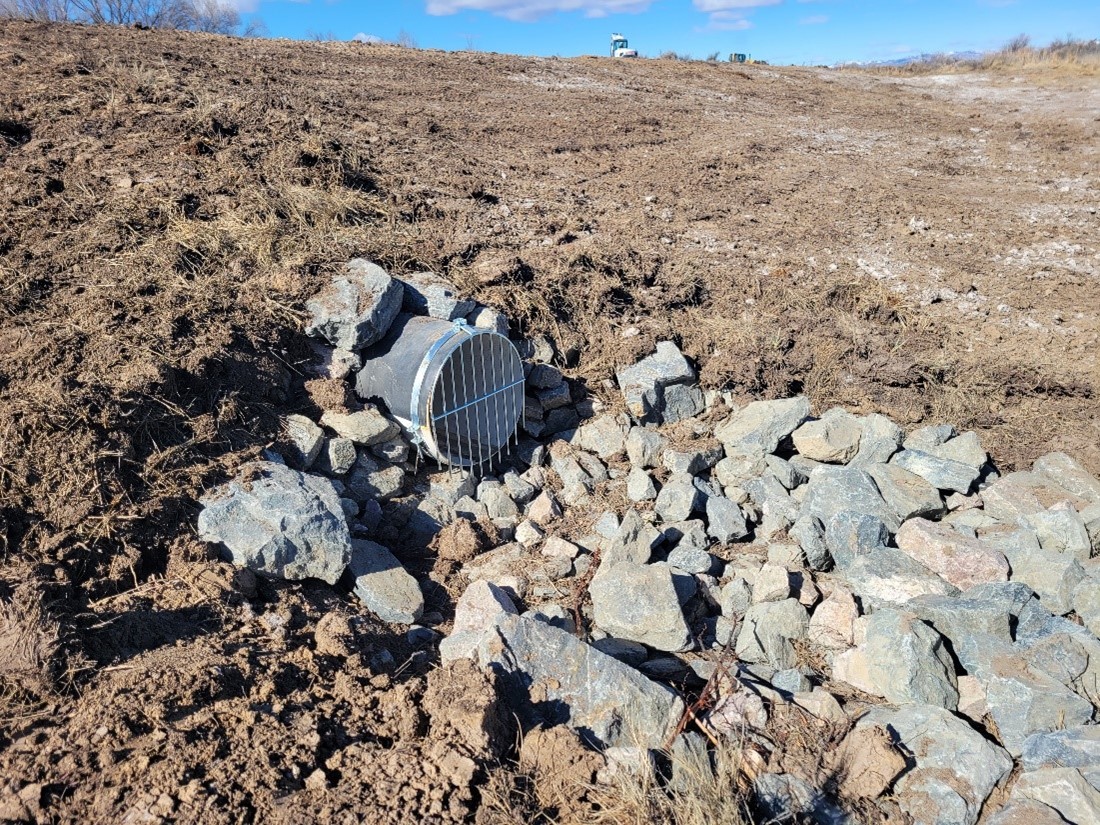Dabbling in Ducks: Supporting Waterfowl Habitat Through Collaboration on Private Lands
RiversEdge West
Wetlands provide many essential ecological services including water storage, nutrient cycling, water quality improvement, carbon sequestration, and wildlife habitat. Many species of waterfowl and other birds use wetland habitat as stopovers during spring and fall migration. These ecosystems also support recreational activities including hunting, fishing, and wildlife viewing. Despite being home to a disproportionately large number of wildlife species, wetland ecosystems make up less than 3% of the total land area in Colorado. Additionally, many wetlands have been negatively impacted by development and drought. There are many agencies and organizations that protect, regulate, and manage wetlands in Colorado and this work often involves collaboration with private landowners.
Since 2020, Steve Bittle, avid land steward and landowner on the Western Slope, has had a vision to create a wetland on his property to support the conservation of native species and to develop waterfowl hunting opportunities. Steve began working with the Natural Resources Conservation Service (NRCS) through their incentive program to realize this vision. Through the NRCS, in 2022 he connected with RiversEdge West (REW), a Grand Junction, CO based non-profit whose focus is on riparian restoration. REW’s Private Lands Biologist, Christine Prins, a partner position with the NRCS, worked closely with the Bittle Family and brought in various partners, to assess the ideal location and design for a wetland on the property. Christine was instrumental in working with the landowner and bringing partners to the table to complete this project that would not have been possible without the collaborative effort of state, federal, and nonprofit entities.
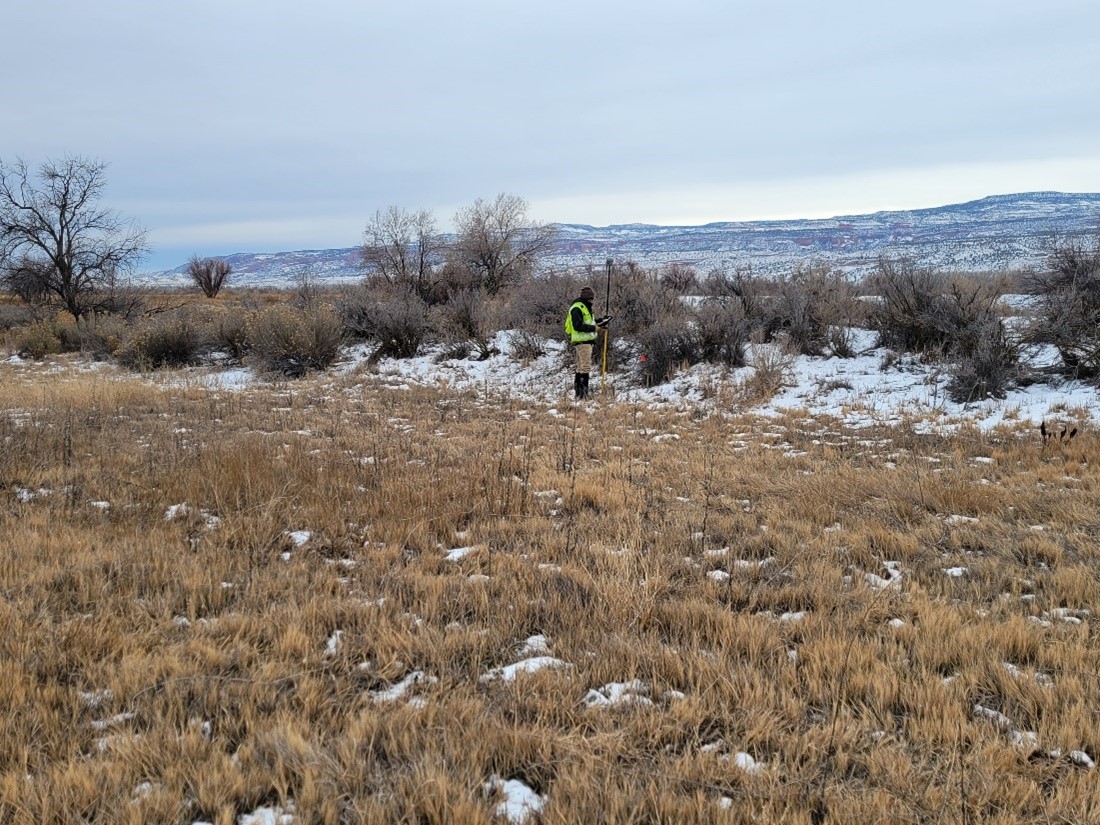 |
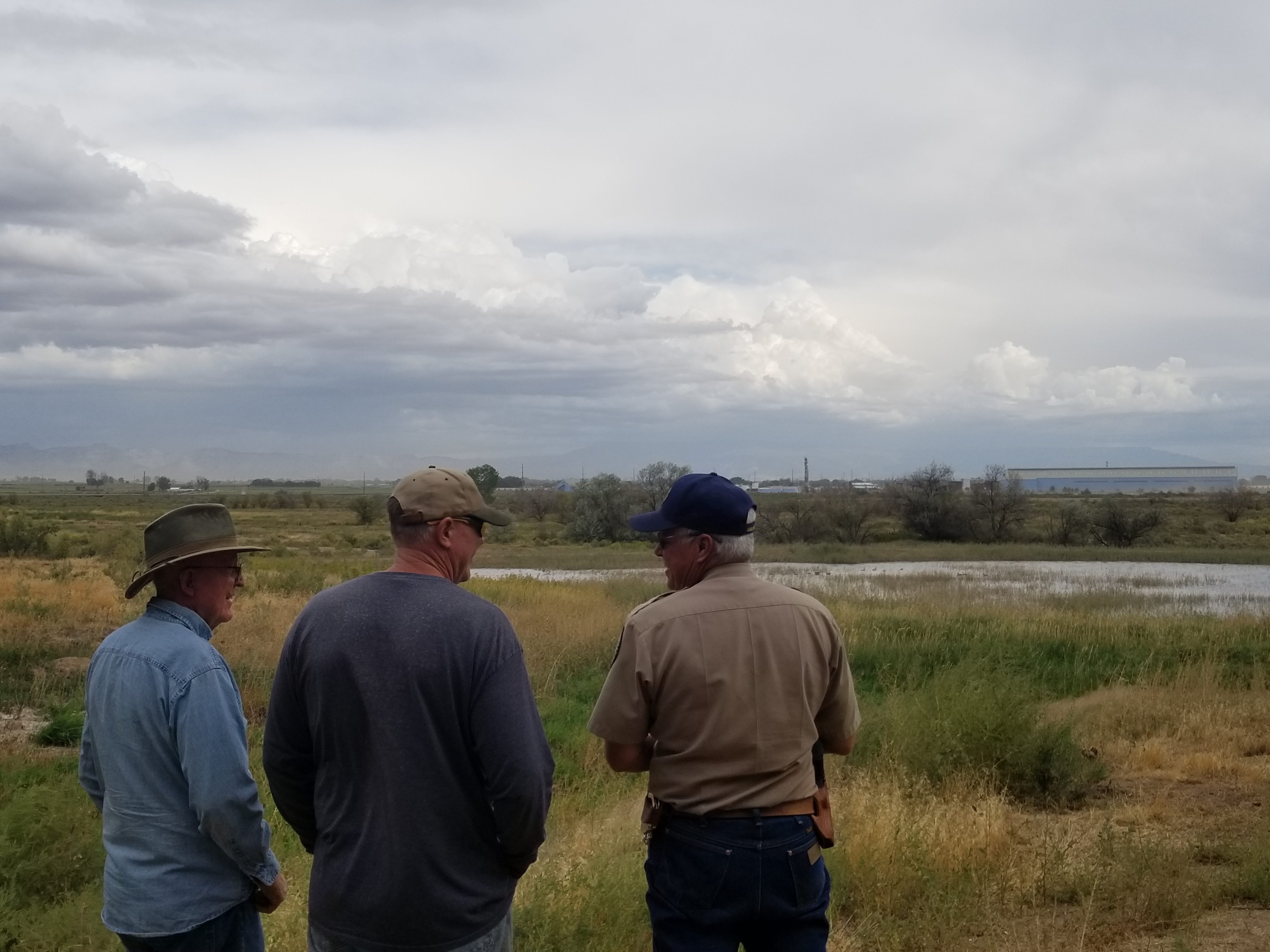 |
| Crew member surveying location for wetland project. | Dale Bittle, Steve Bittle, and CPW's Ivan Archer checking out the newly developed wetland project on Bittle Family lands. |
Christine worked with the Bittle Family, Colorado Parks and Wildlife, and Ducks Unlimited to develop a plan for a 3.75-acre seasonal shallow water wetland. The goal of the Bittle Wetland project was to provide foraging and migration habitat for dabbling ducks and greater sandhill cranes during their migration and to enhance nearby waterfowl hunting opportunities. REW was awarded funding for the project through Colorado Parks and Wildlife’s Wetland Wildlife Conservation Program, which provides funding for wetland creation to “improve the distribution and abundance of ducks, and opportunities for public waterfowl hunting and improve the status of declining or at-risk species.” The Bittle Family expressed how helpful it was to work with Christine and REW to move this project forward. Through partnership with REW and Ducks Unlimited, Steve Bittle’s vision for a functioning seasonal wetland was able to come to fruition. “The movement of this project once REW stepped in was fast and great. I do appreciate that REW was able to move this forward and help cover the costs for this conservation work.” – Steve Bittle
Construction of the wetland was completed in March 2023 using extensive earthwork to build the embankment, set inlet and outlet structures, and shape the wetland profile. Then native grass seeds were dispersed along the embankment to help prevent erosion. The wetlands were filled for the first time in September 2023 and have already seen an influx of waterfowl species. Steve Bittle has worked hard to establish the vegetation and water flow cycle to ensure the success of this riparian area for wildlife. “I had waited until the fall of 2023 to fill the wetland back up to about 18” and sure enough the waterfowl started coming through and using it into the winter.” – Steve Bittle
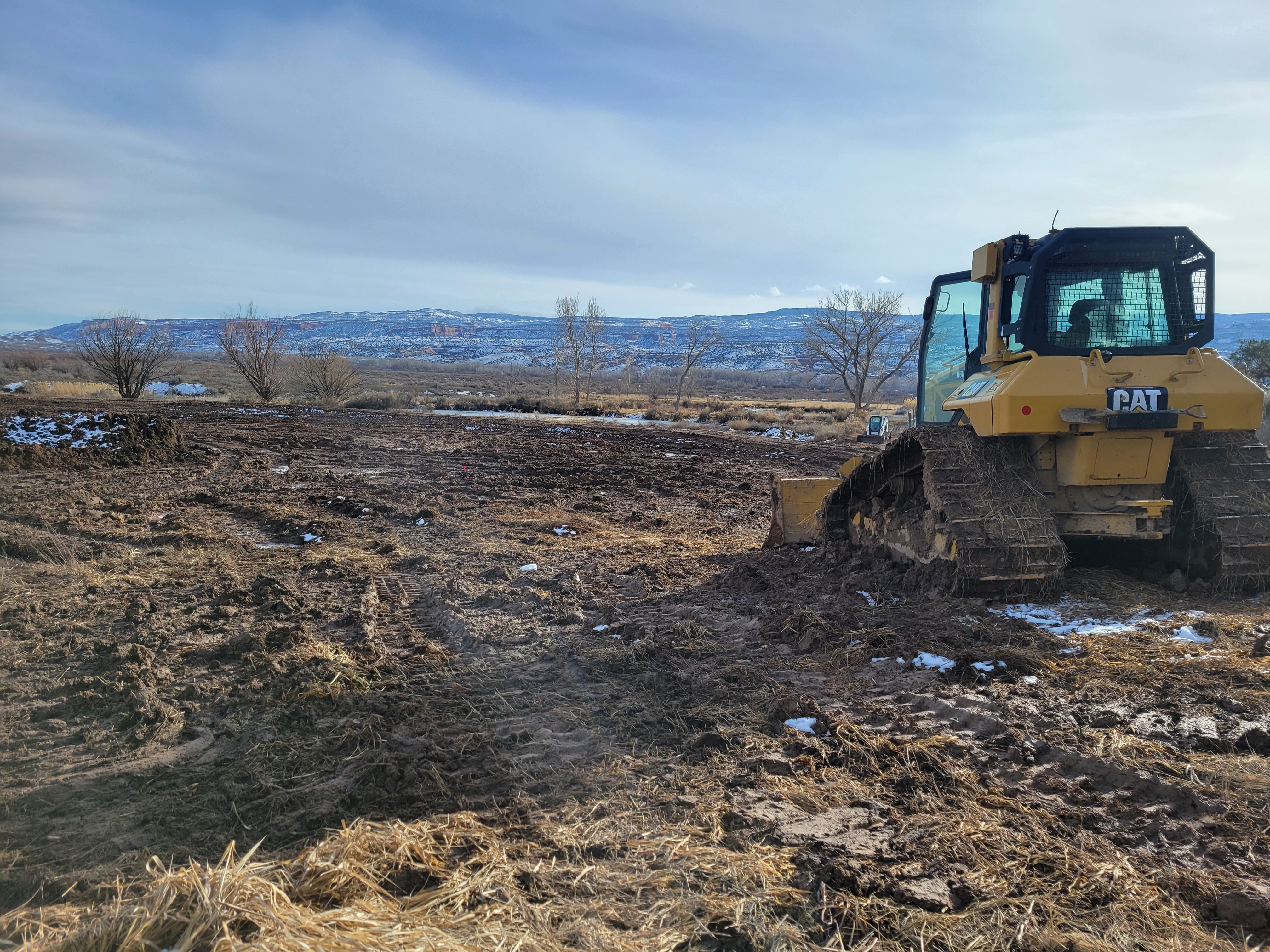 |
|
| Mid-construction earthwork and at wetland site. | Inlet structure for wetland project. |
The wetland uses prescribed flooding and drawdowns to support diverse plant communities of grasses, forbs, and sedges, providing abundant food resources for migratory waterfowl and sandhill cranes. High food value plant species expected to establish in the wetland include millet, nutsedge, smartweed, and strangletop. The establishment of native plant species also supports invertebrate populations, providing an additional food source for migrating bird species. Water is maintained in the wetland through fall and spring migration, with depths well-suited to dabbling ducks and sandhill cranes. The seasonal drying and shallow topographic profile of the wetland allow for the production of energy-rich seeds that waterfowl species depend on during their migration. RiversEdge West used Colorado Parks and Wildlife’s habitat scorecards before and after the wetland was developed to examine the changes in quality of the habitat for dabbling ducks and greater sandhill cranes. They found a 57% improvement in habitat for dabbling ducks and 23% improvement for sandhill cranes. The Bittle family has been thrilled to see waterfowl begin to utilize the wetland. "I’ve been very happy with the waterfowl use and that has really been the success of this project.” - Steve Bittle.
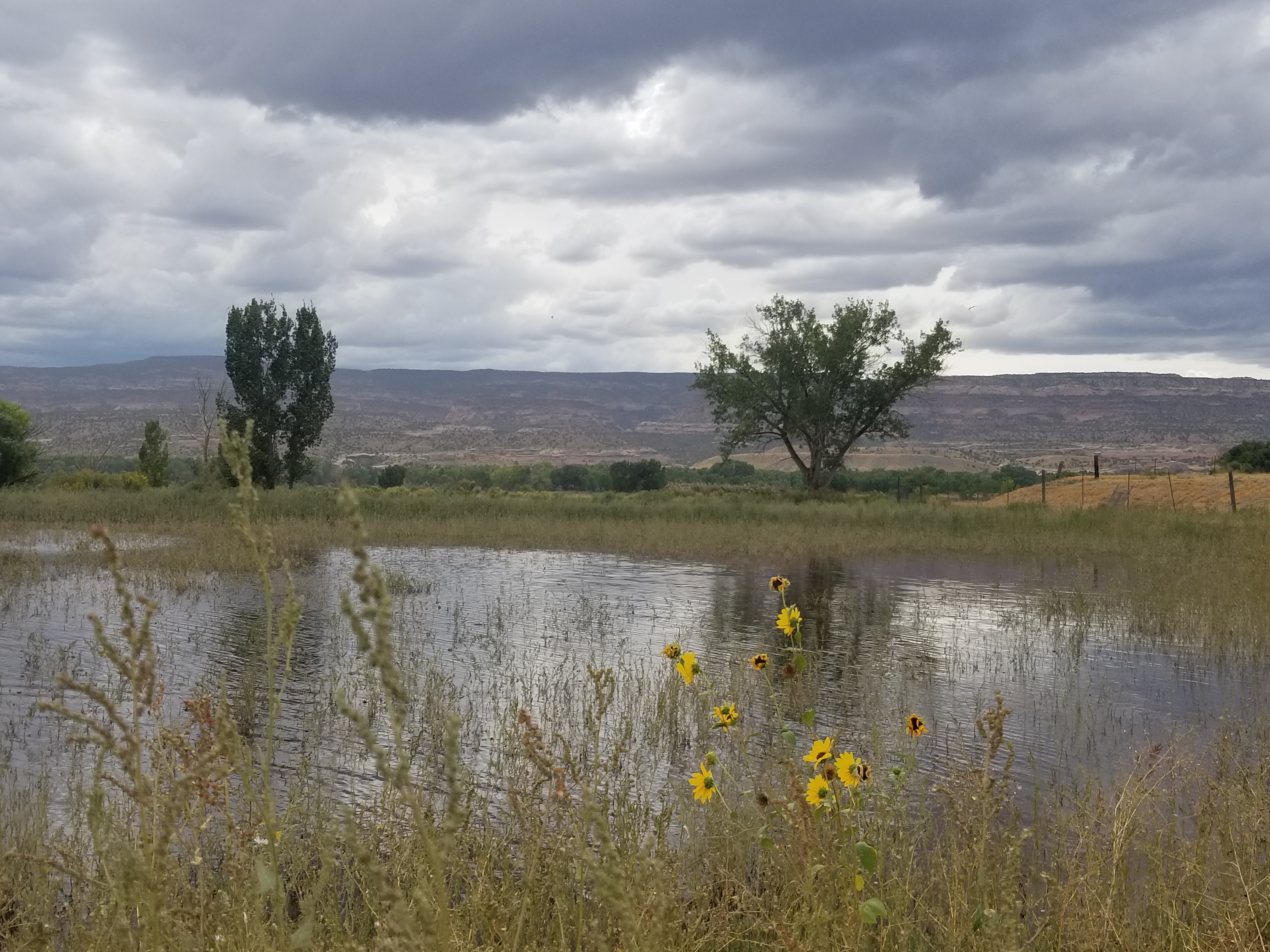 |
|
| Completed and filled wetland in February 2024. | Completed and filled wetland in September 2023. |
This project marks REW's first shallow water wetland project on private lands in the Grand Valley! Going forward, the Bittle Family will maintain and manage the wetland, staying connected with REW’s new Private Lands Biologist, Christa Brown, as the project moves into its next phase. Private landowners like Steve Bittle and his family play a vital role in the development and conservation of riparian and wetland habitat. RiversEdge West is excited to continue to partner with the NRCS, Colorado Parks and Wildlife, and Ducks Unlimited to identify and fundraise for additional wetland enhancement or creation projects that will benefit the overall habitat quality of riparian areas along the Colorado River corridor.
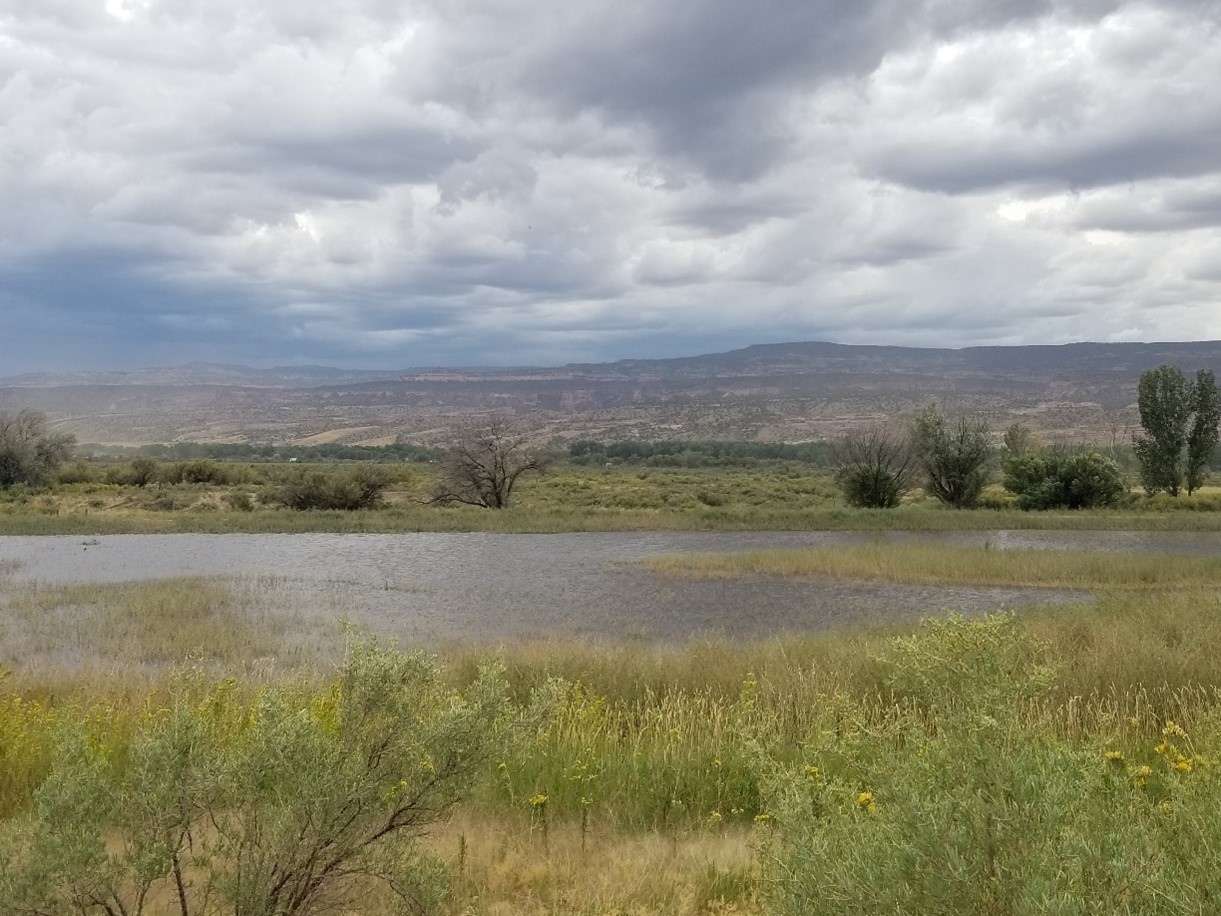 |
|
| Completed and filled wetland with ducks in February 2024. | Completed and filled wetland in September 2023. |
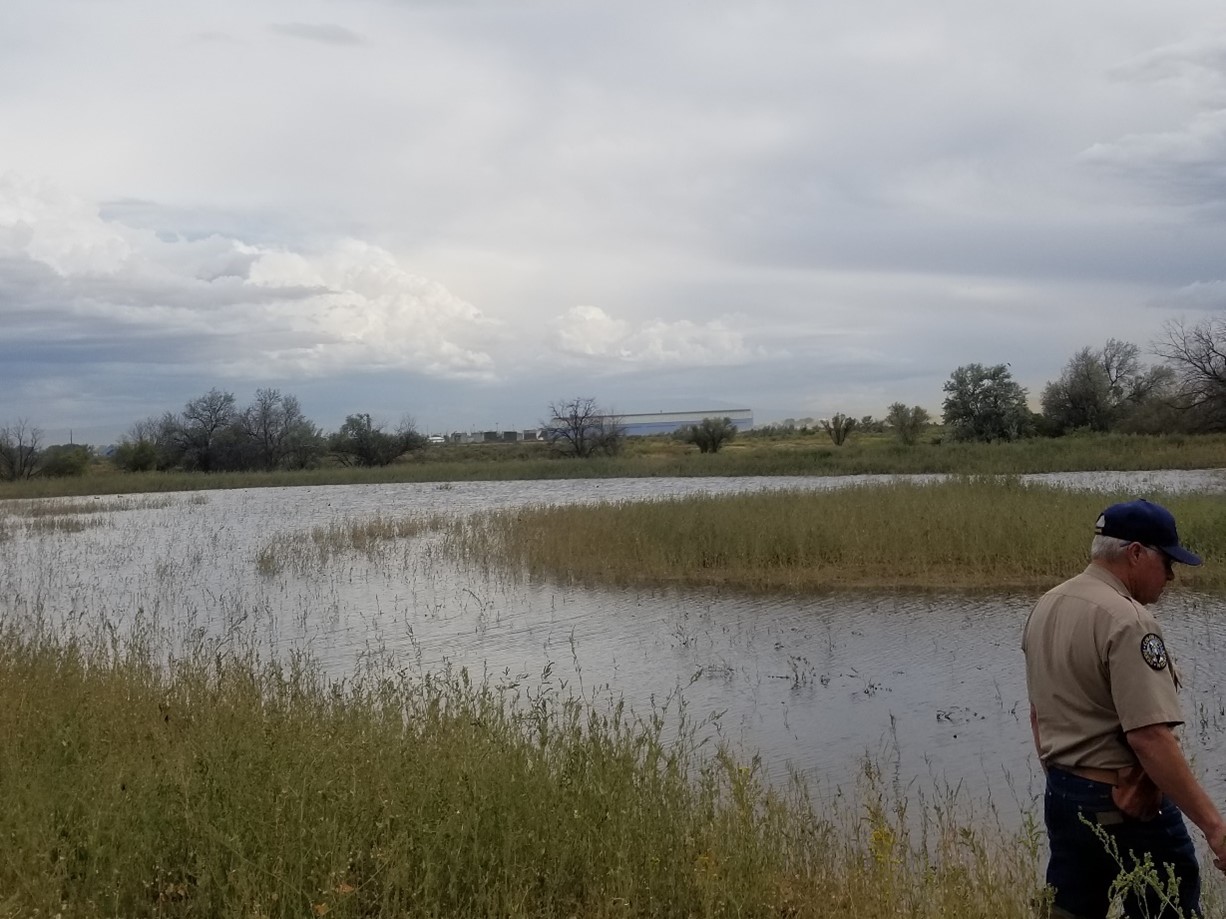 |
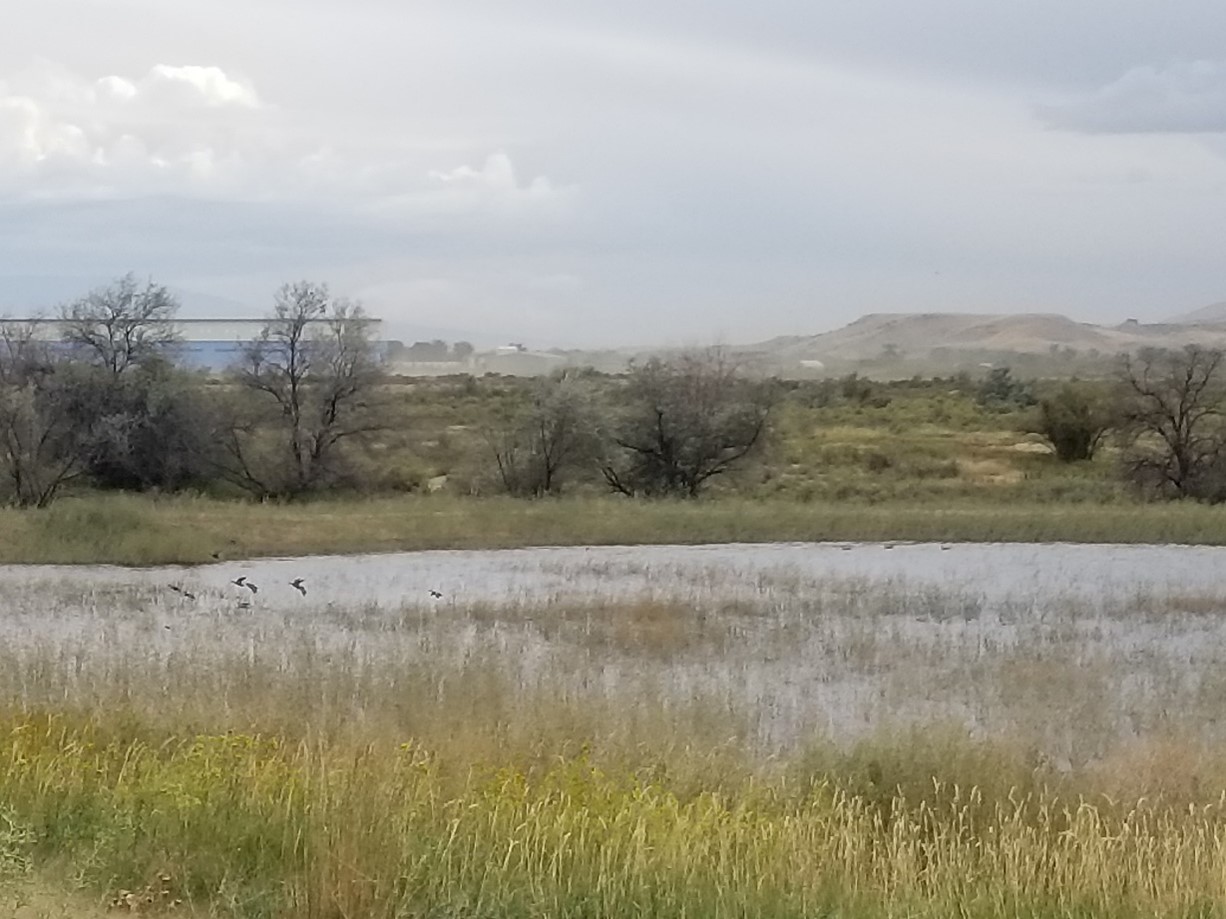 |
| Colorado Parks and Wildlife's Ivan Archer at completed wetland in September 2023. | Completed and filled wetland with ducks in September 2023. |

